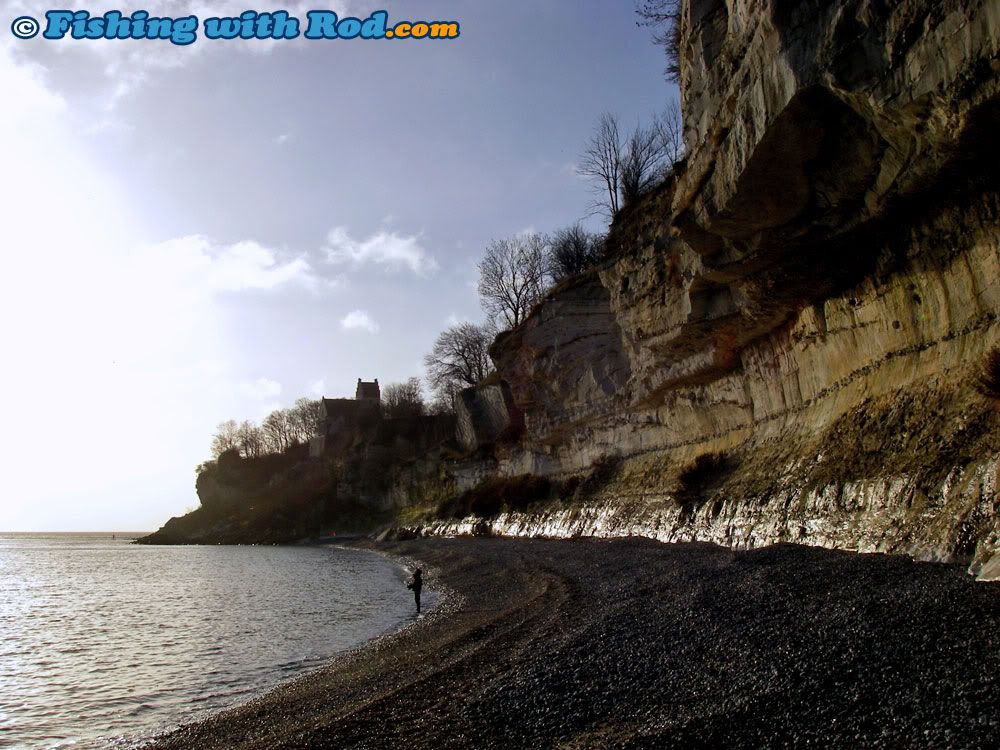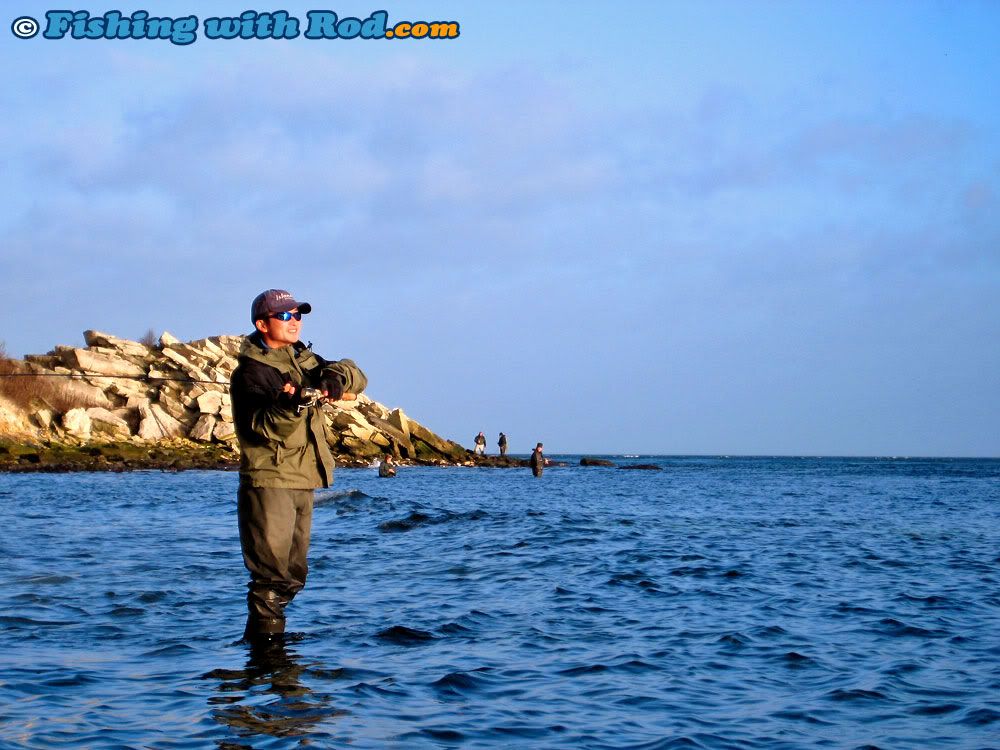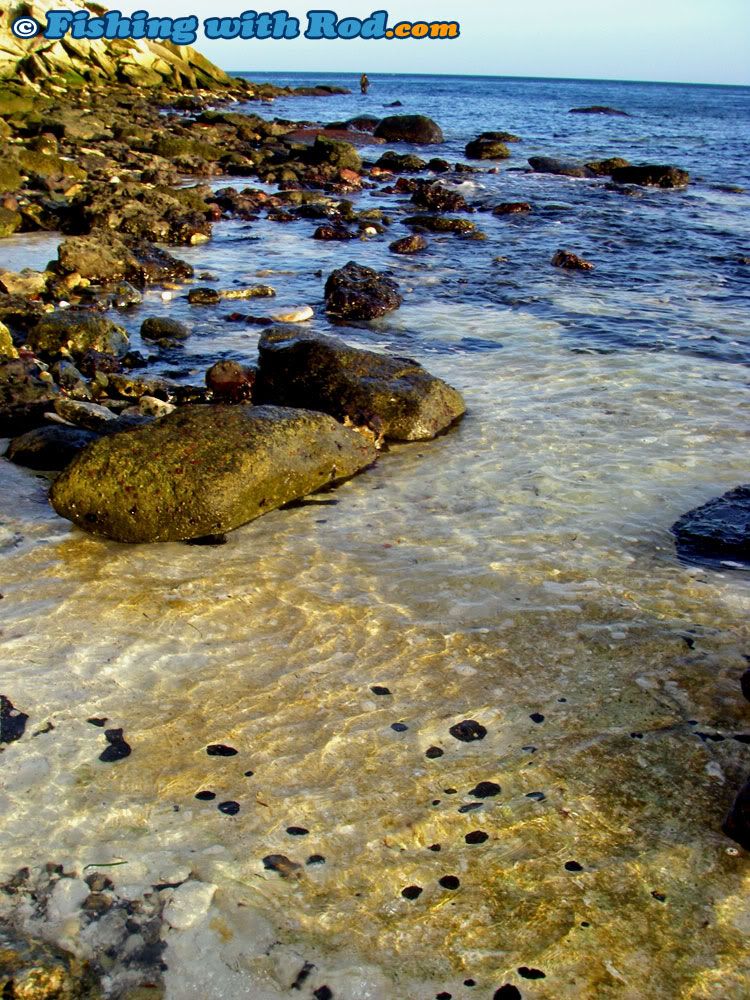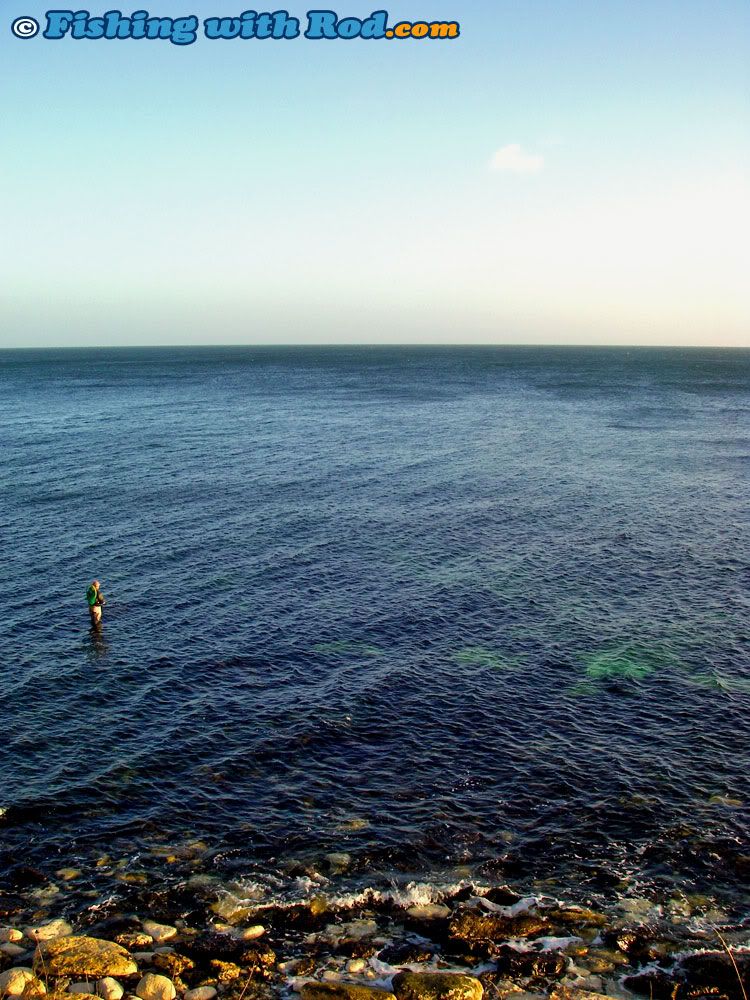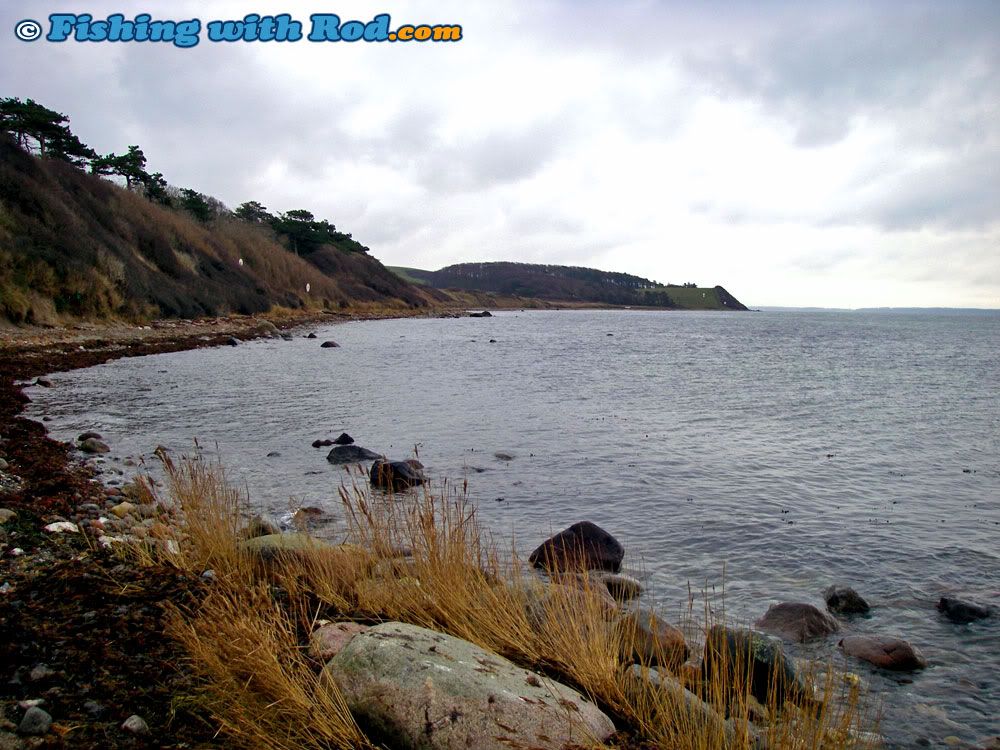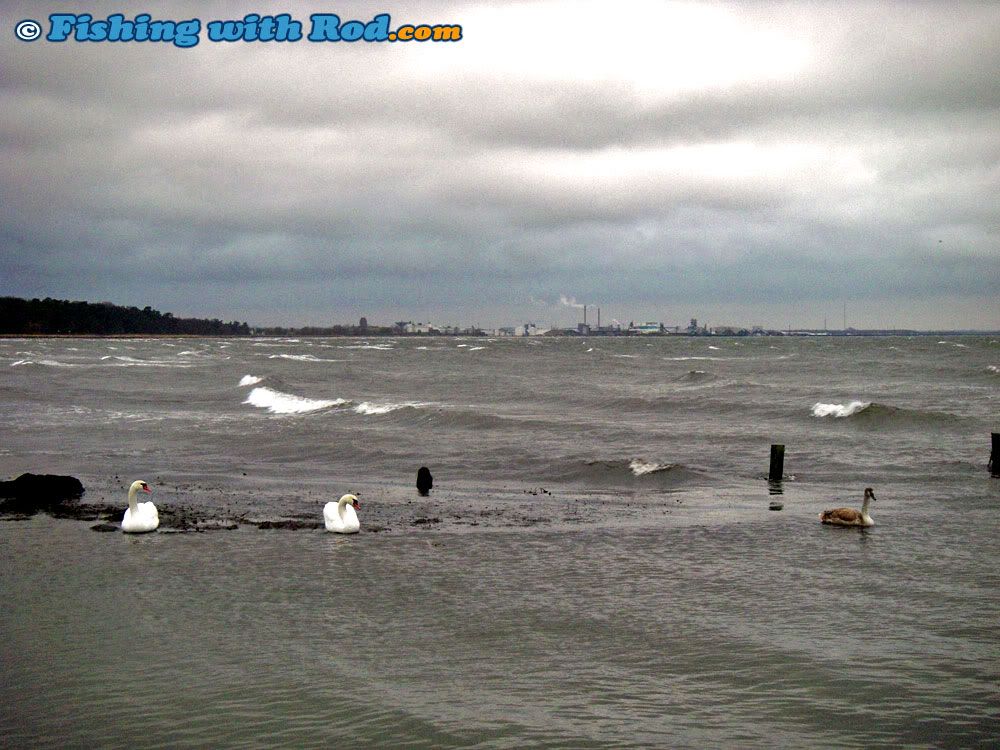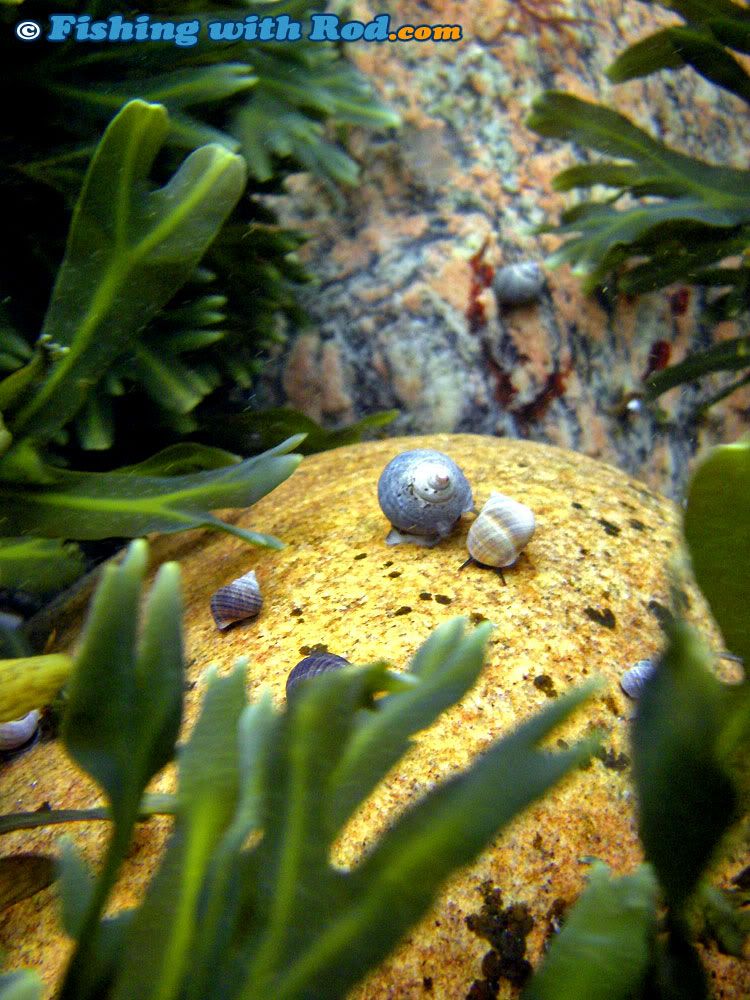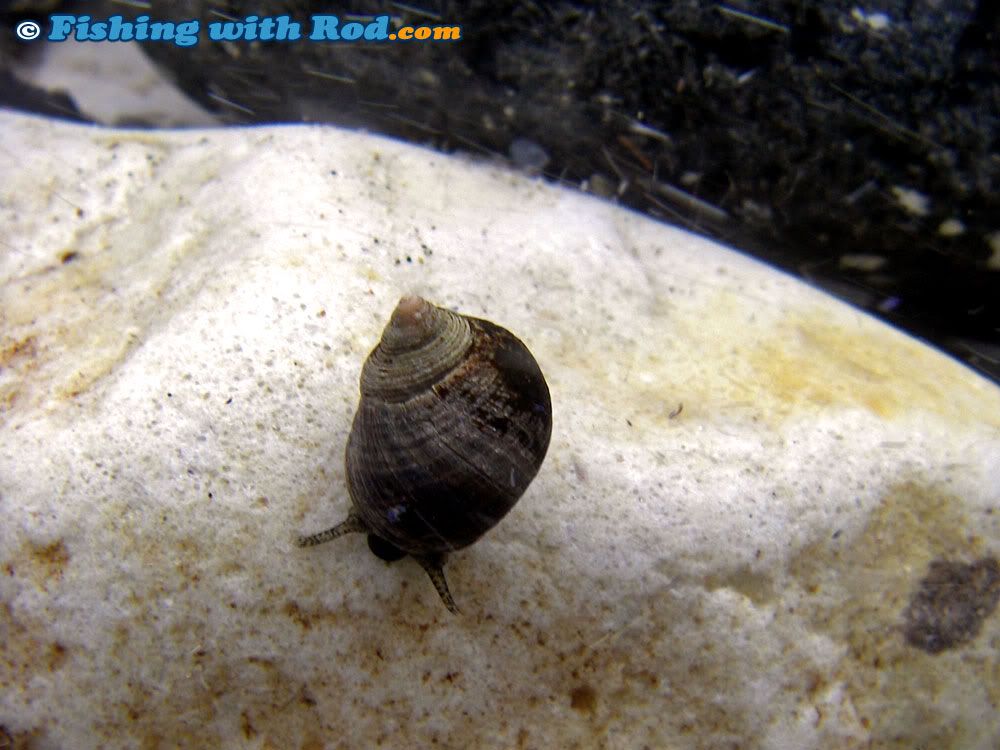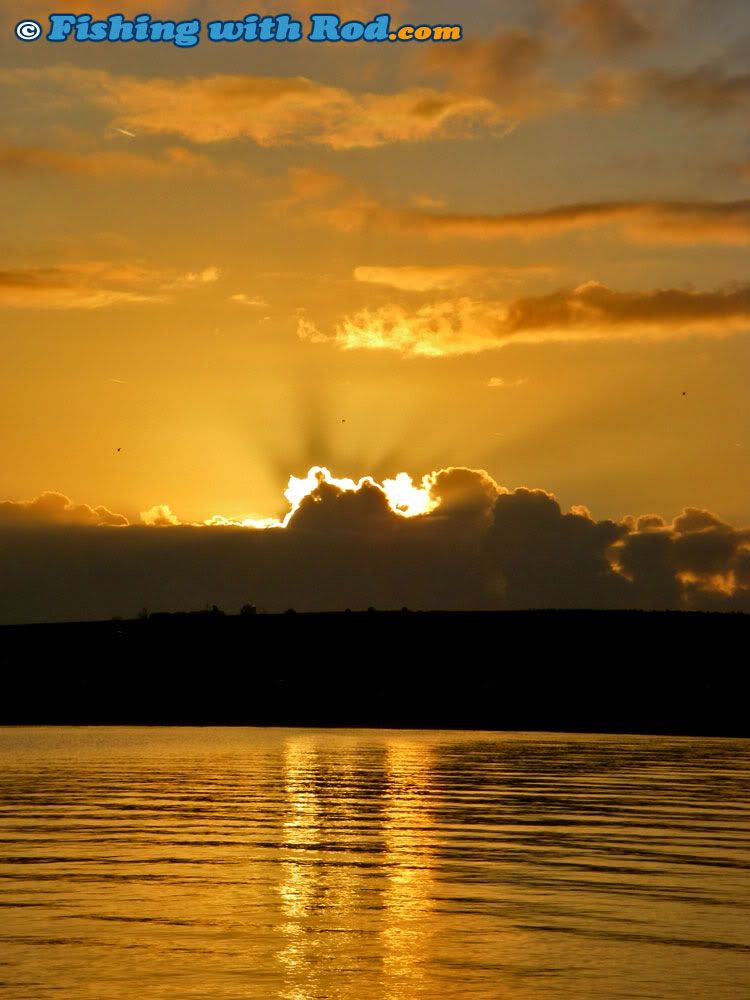A combination of luck and hard labour
Published on Tuesday, December 30th, 2008
Beside dinner on Christmas Eve, Danes celebrate the festive season by hosting Julefrokosts, or more conveniently known as Christmas lunches to visitors. Julefrokosts typically happen on Christmas Day and they can take up the entire afternoon and evening. The starting dishes include herring, smoked salmon, smoked eel, shrimp salad and other seafood related items. These are followed by meat dishes such as meatballs, pork sirloin and roast pork. Cheese, fruit salad and dessert make up a sweet finish, before tea, coffee and snacks are served.Â
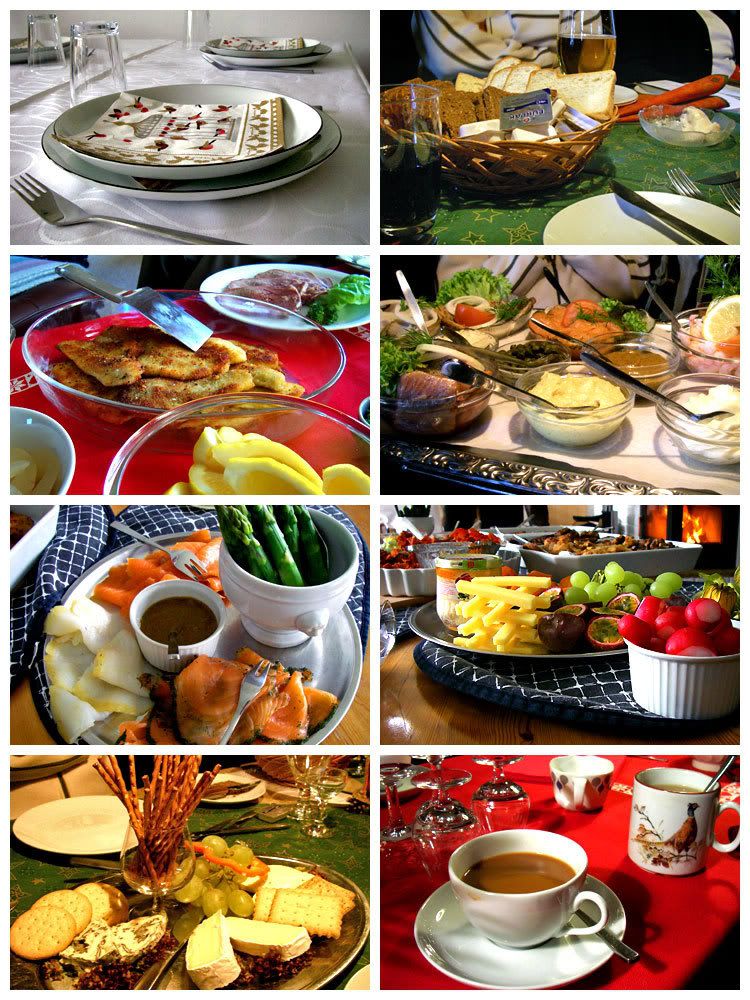
After three days of some serious eating, it was time to get back on the beach to chase those impossible winter silvers. The wind has been very light for almost a week, which is an unusual treat in the winter. This makes beach fishing much more enjoyable.
On the weekend I received a phone call from my friend Bill, an American who has resided in Denmark for many years. Bill and I first corresponded by email several years ago when he found out that I was interested in exploring fishing opportunities in Denmark. We agreed on exploring a new beach along the north coast of Sjælland on Sunday.
We arrived at the location, which another friend Thomas recommended, at 10:00am. Being able to have a late start is one benefit on short winter days. Several anglers were already working on the beach, but that was not a concern because there are miles of beach to be covered. Not knowing which way to go, we decided to head west where no one was fishing.
After working across the beach for an hour, I hooked a good sized fish at a reef in front of me. I called for Bill, who saw the rod kicking just before that unwelcoming slack on the line ten seconds after the hook-up. Was the hook-set not proper? Was the hook not sharp enough? Was the drag not tightened enough? Those same questions kept circulating in the head when a sea trout was lost. There was not much to do except making more casts and hoping that other fish were nearby. Not long after the first hook-up, I spotted a smaller fish following the lure to shore without contact.
The waves became larger in the afternoon even though the wind was light. Perhaps the offshore wind was generating them. This made fishing slightly more difficult. After covering the entire section where we wanted to fish, we worked our way back to the starting point.
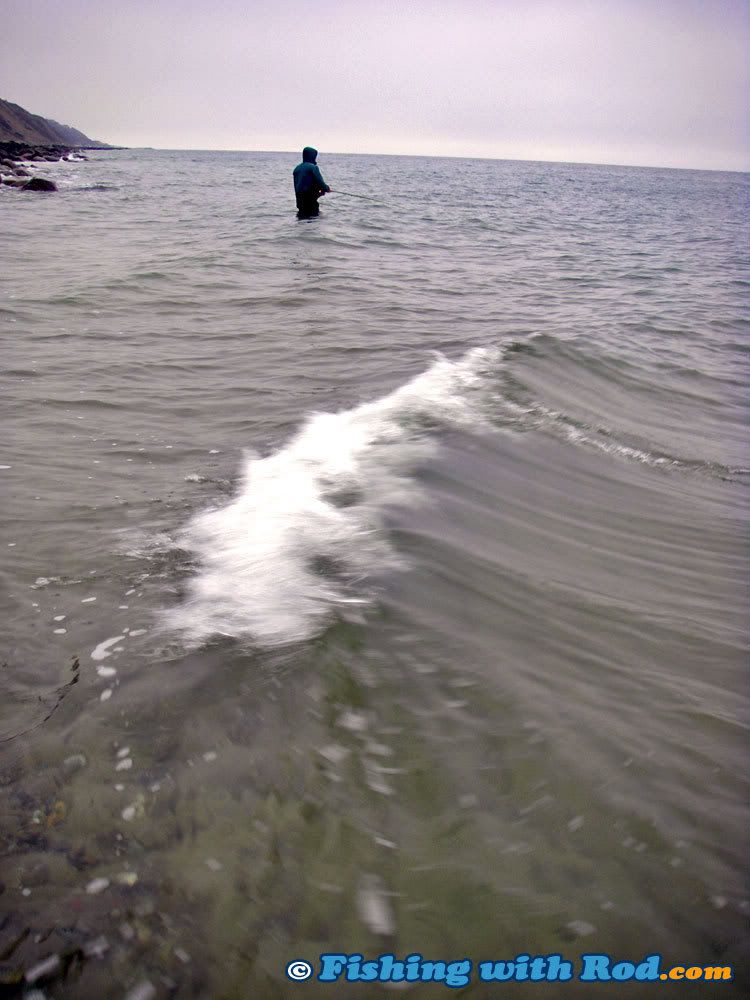
While working through the reefs where I first hooked a fish, I spotted another sea trout following my fly after the crest of a wave. Perhaps it saw me at the same time, it took a quick peck at the fly before dashing away without being hooked. Bill reported missing a couple of light taps before we called it a day when heavy fog creeped in. As frustrating as it was, this was considered an above average sea trout day.
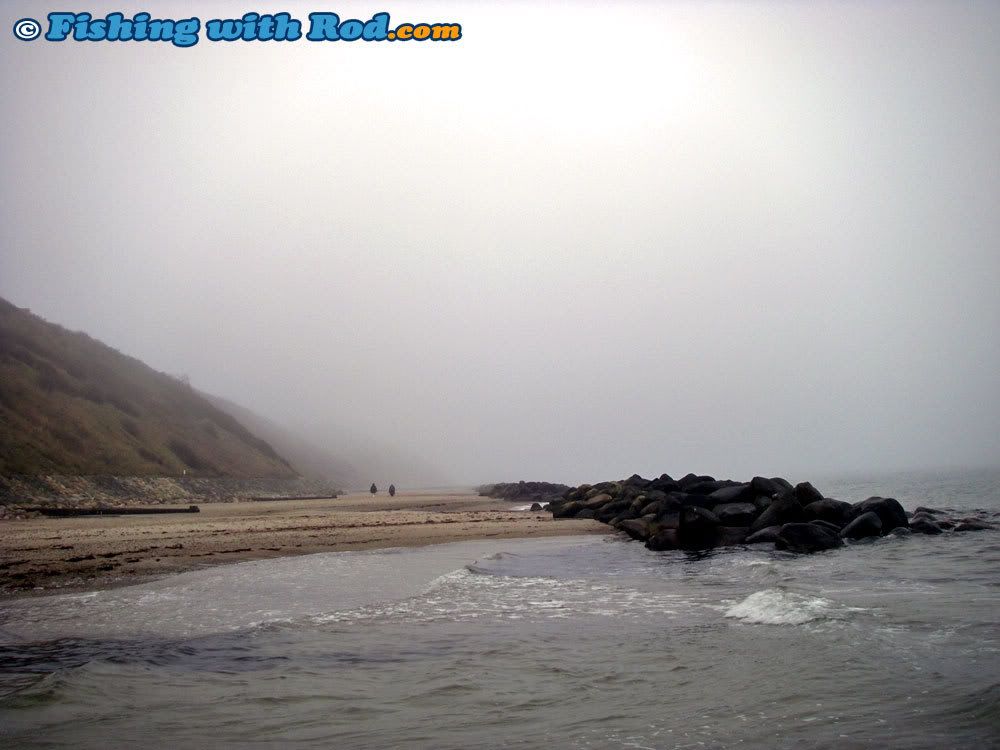
The thought of losing a fish and the sighting of more followers taunted me when I returned home. I decided that I need to go back for more punishment. Bill phoned soon after and he also had the same idea, so we returned to the beach today.
The sea was even calmer than our last trip, which made reef and fish spotting much easier. The temperature was several degrees lower than last weekend, so we were expecting numb hands and feet once we get in the water.
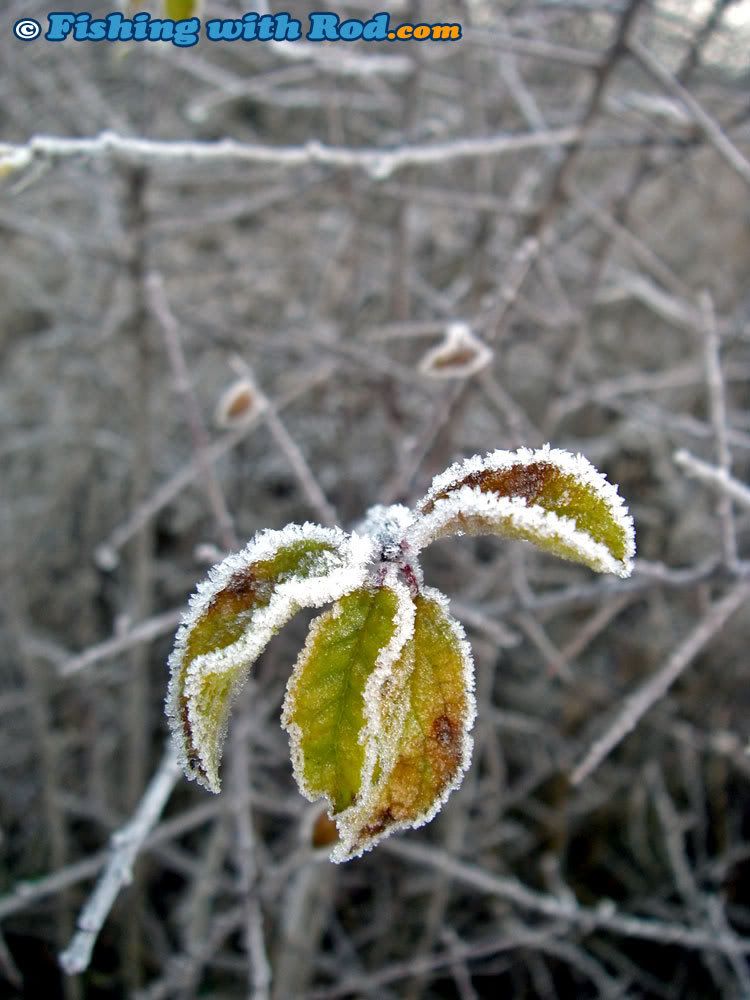
Being a weekday, the beach was void of anglers. I started my search by heading down to where I lost my fish two days ago. The clear and flat water revealed the exact location of all the reefs. They turn out to be much further out than I thought. We worked through the area quickly and came up empty, so it was time to explore some new waters.
Bill and I believed that we would have more success by moving few steps after each cast. Because it is almost impossible to see the fish in the water, it is difficult to know whether we are working through areas where the fish do not bite easily or no fish are holding at all. There is no point casting at one place over a long period of time and wondering these questions. Instead, we chose to tempt aggressive fish that would readily take a lure or fly on the first cast.
The newly explored waters were fantastic. The water is deep and the bottom is partially or fully covered with reefs, which could potentially hold fish. Just after I felt a light tug and wondered if it was a fish, Bill spotted a rise in front of us. Within a few seconds, a smal sea trout grabbed his fly without hesitation.
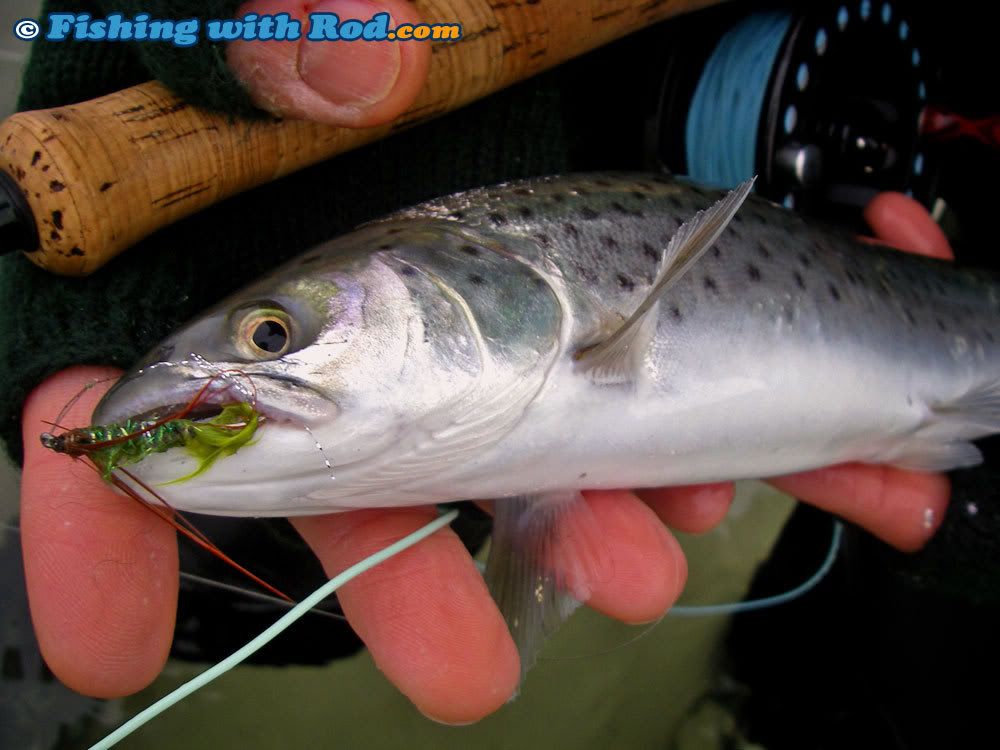
We worked the same spot for a few more minutes, hoping that his fish was just one of an active pod. We were unable to generate another bite after many casts, so it was time to get back on track.
Another angler was working his way toward us, so we decided to skip the reefs between us and jumped onto the section where he had just fished. A few minutes after Bill wetted his fly at the new section, he quietly informed me that he had just felt some taps. He proceeded to hook up. It was a fat sea trout, easily in the 2 to 4lb range. This silver fish tail danced on the surface toward Bill, who frantically stripped his line in. Unfortunately he could not keep up and the fish earned its freedom. A few casts later, there was another hook-up! This time the fish was more tamed and brought to his hands in no time. It was a small overwintering fish, which was released for more growth.
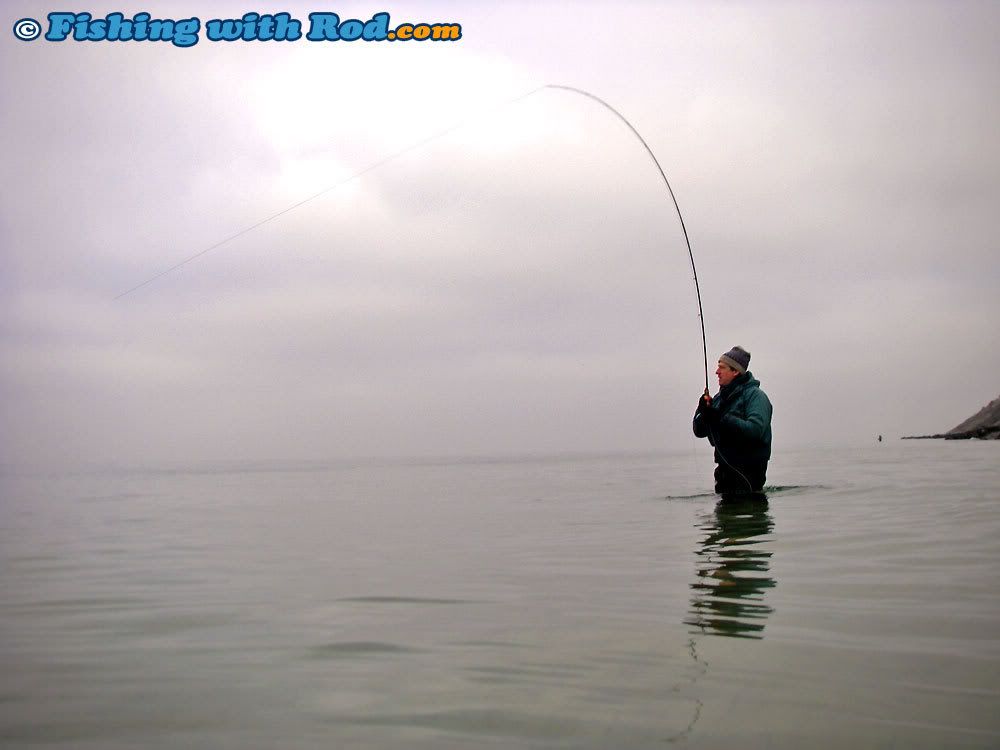
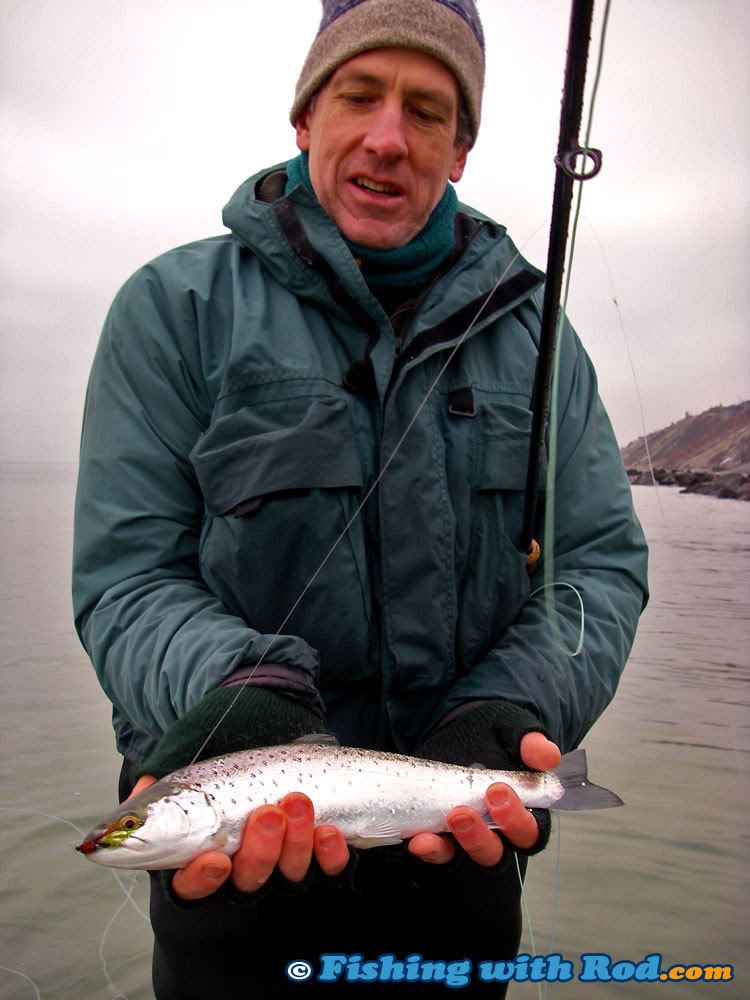
Bill felt a few more taps after landing his second fish, then it was all over. A school of fish was obviously encountered. Somehow our neighbouring angler was unlucky enough to miss it when working his way through the same beach. The element of luck can really make you either love or hate this game.
As daylight was coming to an end, we decided to work through some of the earlier fished sections before calling it a day. I headed back to my lucky spot and a fish was hooked in no time. This sea trout followed the lure in like others, except it felt confident enough to bite it just before I lifted the lure out of the water. The hook was not even set, it simply hooked itself. It tail danced all around me as I brought it closer to shore, then it once again fell of the hook! Not only it got off, it decided to taunt me some more before swimming away by doing a few more jumps around me, bouncing itself off a rock after jumping onto it.
I rushed back to shore and grabbed the fly rod, hoping that a school of them was sticking around. Unfortunately many casts later yielded no taps. I looked toward Bill, who was fishing a couple hundred meters away from me. He was making his way to land and my phone rang at the same time. I thought that he was calling it a day.
“Rodney, get up here quickly! A load of fish is in front of me right now, I just landed two.”
The two hundred metre dash could possibly be within the Olympic qualifying time. I arrived to see Bill tailing a rather heavy fish in the shallow water. It appeared to be a post spawner, but a rather silver one if it was. Unfortunately the fish was hooked quite deeply and bleeding, so we decided that it was best to keep this one.
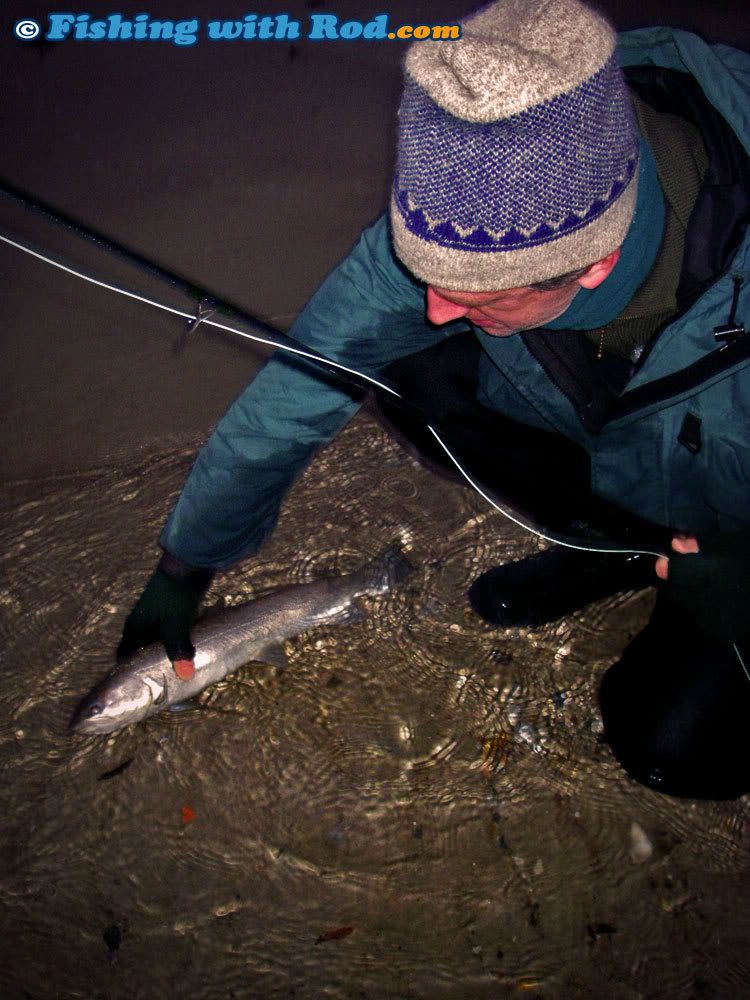
The school of fish that Bill became so excited about was long gone after we headed back out in the water. These sea trout leave as fast as they show themselves, so one really needs to make the best out of it when the fishing is hot. We ended our trip just before dark. With half a dozen fish hooked, this is the best winter outing to date. Is it luck, hard labour or an improvement on our tactics?

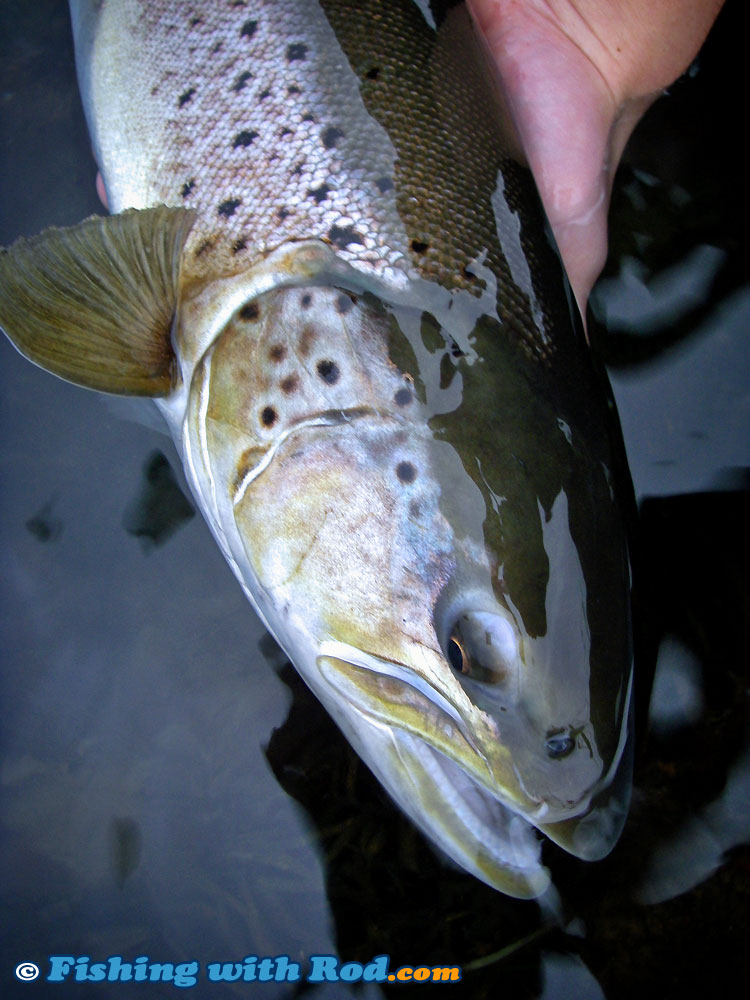





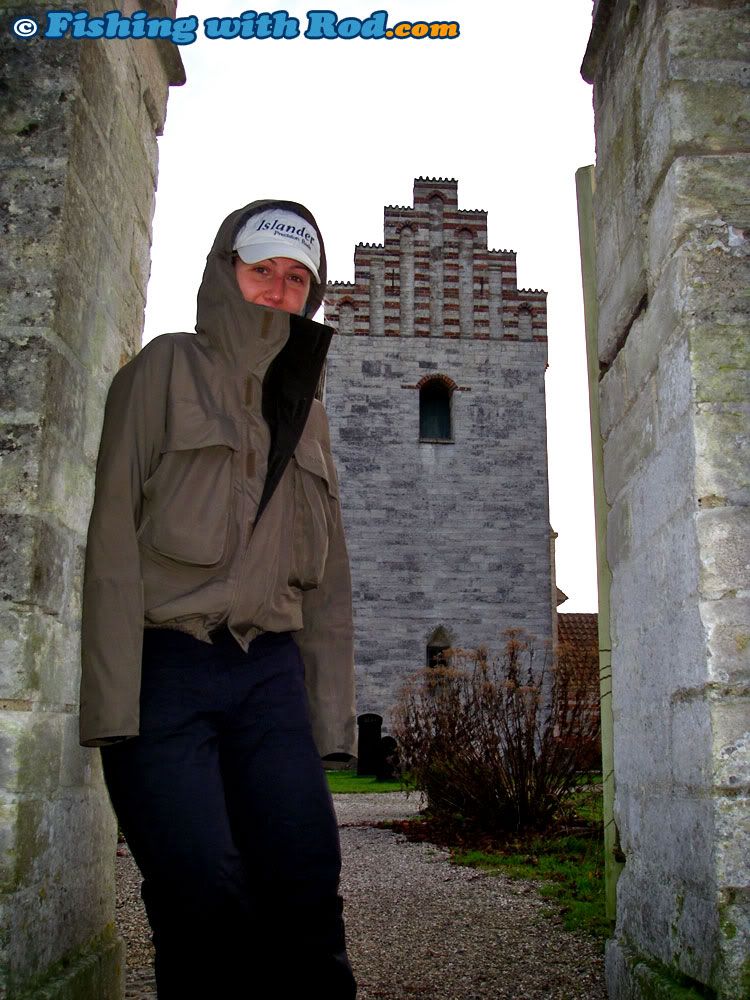

 Â
 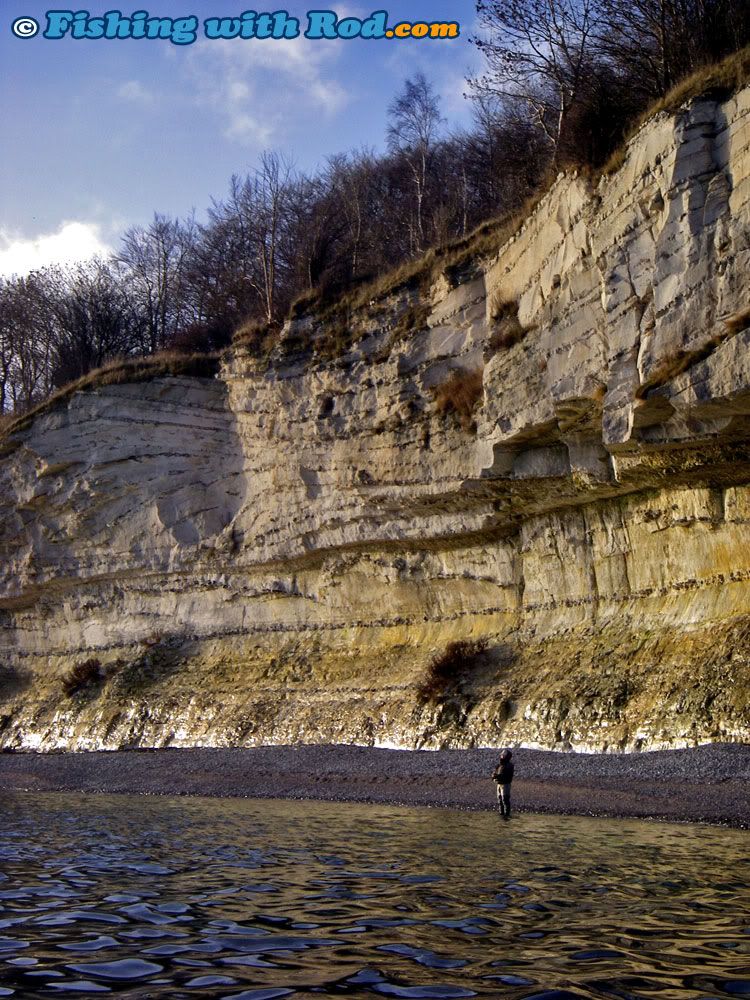 Â
 
